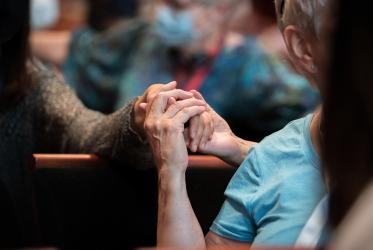Displaying 1 - 20 of 40
17 April 2024
ACT Alliance general secretary: “equity is not negotiable”
26 September 2023
HIV and AIDS Civil Society Networks and the Faith Sector
Lessons Learnt from Strategic Engagement in India, Dominican Republic, Indonesia, and Jamaica
31 January 2023
Pandemic and pedagogy: what are the valuable lessons?
21 December 2022
Called to Transformation - Ecumenical Diakonia
09 June 2022

















